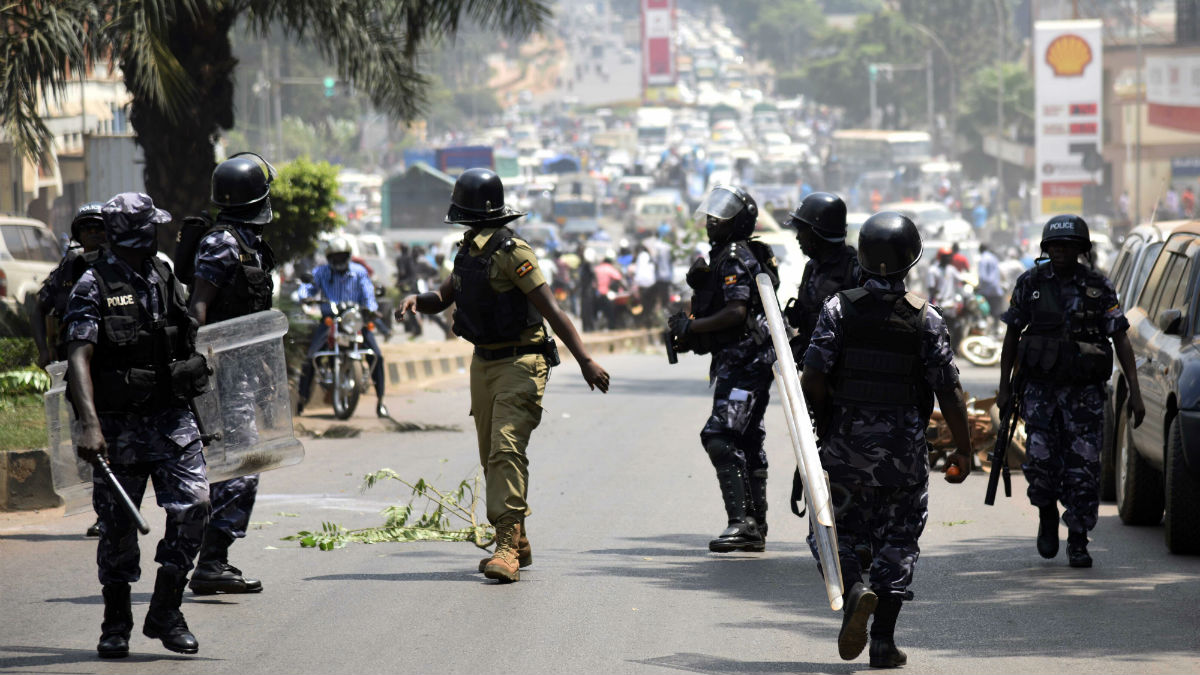Uganda elections 2016: will vote end with violent reprisals?
President Yoweri Museveni warns protests against outcome will not be tolerated as country takes to the polls

A free daily email with the biggest news stories of the day – and the best features from TheWeek.com
You are now subscribed
Your newsletter sign-up was successful
On Thursday, 15 million Ugandans will vote on who they want leading their country. President Yoweri Museveni and the ruling National Resistance Movement (NRM) have held power since taking control of the country in 1986.
In recent weeks, human rights watchdogs have voiced alarm at an increase in violent rhetoric, warning of severe consequences against anyone who protests against the result. Museveni has a history of controversy and has been accused of bribery, intimidation and violence.
Who is running?
The Week
Escape your echo chamber. Get the facts behind the news, plus analysis from multiple perspectives.

Sign up for The Week's Free Newsletters
From our morning news briefing to a weekly Good News Newsletter, get the best of The Week delivered directly to your inbox.
From our morning news briefing to a weekly Good News Newsletter, get the best of The Week delivered directly to your inbox.
There are seven candidates. As well as Museveni, Uganda's president for the last 30 years, hopefuls include long-time opposition leader Dr Kizza Besigye and former prime minister Amama Mbabazi.
Who is President Museveni?
Museveni has led Uganda since 1986, after overthrowing Milton Obote in a military coup.
For his part, Obote had himself seized power – for the second time - in 1979, following the toppling of brutal dictator Idi Amin – the same man who had deposed him in 1971.
A free daily email with the biggest news stories of the day – and the best features from TheWeek.com
Although Museveni has been credited with restoring stability to a country rocked by successive conflicts and coups, he has also been criticised internationally for signing a bill that threatens life in prison for "aggravated homosexuality".
What is his track record with human rights?
Museveni rose to power in part because of his pro-human rights agenda. Backed by the West after the fall of Amin, he appeared to be a progressive influence, but yearly reports from the Ugandan Human Rights Commission show abuses continue to take place regularly and are, in fact, increasing. Dissidents still face torture and disappearances have been reported.
Is violence likely after the election?
Members of the ruling party have reportedly said post-election protests will be met with force. According to Human Rights Watch, government official Kasule Lumumba was recorded in late January telling audiences that "the state will kill your children" if demonstrations took place.
In recent years, security officials have killed protestors, including children, during public marches.
Since Uganda's independence from Britain in the 1960s, the country has not seen a single peaceful transition of power and many observers believe post-election demonstrations are likely, with protesters – and bystanders – at risk of state-sanctioned violence.
-
 What to know before filing your own taxes for the first time
What to know before filing your own taxes for the first timethe explainer Tackle this financial milestone with confidence
-
 The biggest box office flops of the 21st century
The biggest box office flops of the 21st centuryin depth Unnecessary remakes and turgid, expensive CGI-fests highlight this list of these most notorious box-office losers
-
 The 10 most infamous abductions in modern history
The 10 most infamous abductions in modern historyin depth The taking of Savannah Guthrie’s mother, Nancy, is the latest in a long string of high-profile kidnappings
-
 Epstein files topple law CEO, roil UK government
Epstein files topple law CEO, roil UK governmentSpeed Read Peter Mandelson, Britain’s former ambassador to the US, is caught up in the scandal
-
 Iran and US prepare to meet after skirmishes
Iran and US prepare to meet after skirmishesSpeed Read The incident comes amid heightened tensions in the Middle East
-
 Israel retrieves final hostage’s body from Gaza
Israel retrieves final hostage’s body from GazaSpeed Read The 24-year-old police officer was killed during the initial Hamas attack
-
 China’s Xi targets top general in growing purge
China’s Xi targets top general in growing purgeSpeed Read Zhang Youxia is being investigated over ‘grave violations’ of the law
-
 Panama and Canada are negotiating over a crucial copper mine
Panama and Canada are negotiating over a crucial copper mineIn the Spotlight Panama is set to make a final decision on the mine this summer
-
 Why Greenland’s natural resources are nearly impossible to mine
Why Greenland’s natural resources are nearly impossible to mineThe Explainer The country’s natural landscape makes the task extremely difficult
-
 Iran cuts internet as protests escalate
Iran cuts internet as protests escalateSpeed Reada Government buildings across the country have been set on fire
-
 US nabs ‘shadow’ tanker claimed by Russia
US nabs ‘shadow’ tanker claimed by RussiaSpeed Read The ship was one of two vessels seized by the US military